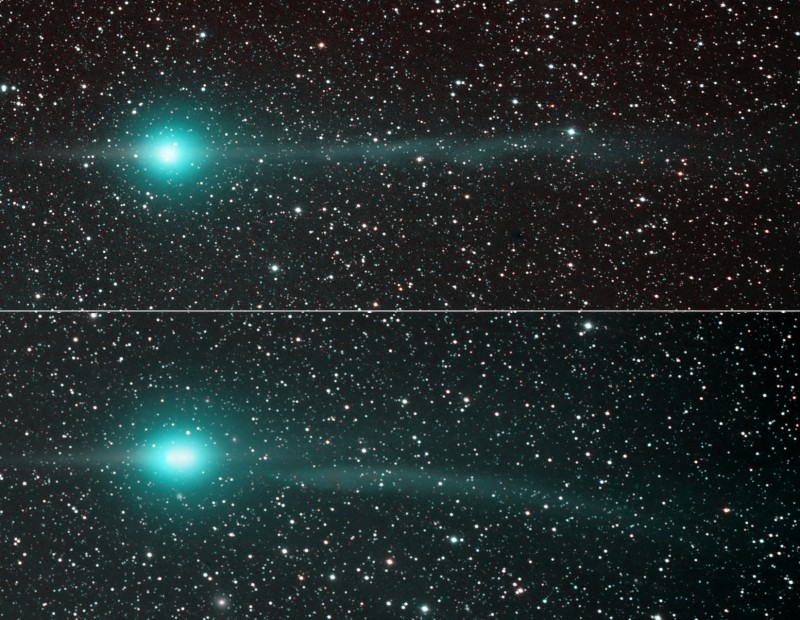
|
Credit & Copyright: Joseph Brimacombe
Explanation:
Sweeping through the inner solar system,
Comet Lulin
is easily visible in both
northern and
southern
hemispheres
with binoculars or a small telescope.
Recent changes in Lulin's lovely
greenish coma and
tails are featured in this two panel comparison of
images taken on January 31st (top) and February 4th.
Taken from dark New Mexico Skies, the images span over 2 degrees.
In both views the comet sports an apparent
antitail at the left -- the comet's
dust tail appearing almost edge on
from an earth-based perspective as it trails behind in
Lulin's
orbit.
Extending to the right of the coma, away from the Sun,
is the beautiful ion
tail.
Remarkably, as captured in the bottom panel, Comet Lulin's
ion tail became disconnected on February 4,
likely buffeted and torn away by magnetic fields in
the solar wind.
In 2007 NASA satellites recorded a similar disconnection event
for Comet Encke.
Don't worry, though.
Comet tails can grow back.
|
January February March April May June July August September October November December |
| ||||||||||||||||||||||||||||||||||||||||||||||||
NASA Web Site Statements, Warnings, and Disclaimers
NASA Official: Jay Norris. Specific rights apply.
A service of: LHEA at NASA / GSFC
& Michigan Tech. U.
Based on Astronomy Picture
Of the Day
